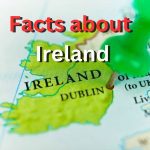Introduction:
Canada is renowned for its high-quality education system, including early childhood education programs that prioritize holistic development and nurturing young minds. For international students interested in pursuing studies in early childhood education, Canada offers a welcoming environment, diverse learning opportunities, and world-class institutions. In this blog, we’ll delve into the benefits of studying early childhood education in Canada, explore program options, and discuss tuition fees and financial considerations for international students.
Excellence in Early Childhood Education in Canada:

- Canada’s early childhood education system is grounded in research-based practices, emphasizing play-based learning, child-centered approaches, and fostering social-emotional development. Institutions prioritize the well-being and holistic development of young learners, preparing graduates to become competent and compassionate educators.
Program Options and Specializations:
- Canadian universities and colleges offer a range of early childhood education programs, including diplomas, certificates, bachelor’s degrees, and postgraduate studies. Students can choose from various specializations, such as curriculum development, child psychology, special education, and leadership in early childhood settings.
Tuition Fees and Financial Considerations:
- Tuition fees for international students in early childhood education programs vary depending on the institution, program duration, and level of study. While tuition fees may be higher for international students compared to domestic students, scholarships, grants, and financial aid options are available to help offset costs. It’s essential for international students to research tuition fees, living expenses, and funding opportunities when planning their studies in Canada.
Support Services for International Students:
- Canadian universities and colleges offer comprehensive support services for international students, including orientation programs, academic advising, language support, housing assistance, and counseling services. Institutions are committed to creating an inclusive and supportive environment for international students, ensuring a smooth transition and positive learning experience.
Practical Experience and Professional Development:

- Early childhood education programs emphasize practical experience through practicum placements, fieldwork, and hands-on learning opportunities in childcare centers, preschools, and community settings. Students gain valuable practical skills, build professional networks, and prepare for careers as early childhood educators or advocates.
Career Opportunities and Pathways:
- Graduates of early childhood education programs in Canada have diverse career opportunities, including working as early childhood educators, preschool teachers, childcare administrators, policy advocates, and consultants. Canada’s growing emphasis on early childhood education and care creates a demand for qualified professionals in the field, offering rewarding and meaningful career pathways.
Conclusion:
Studying early childhood education offers international students a unique opportunity to immerse themselves in a world-renowned education system, gain practical experience, and contribute to the well-being of young children and families. With a focus on excellence, inclusivity, and innovation, Canada’s early childhood education programs prepare graduates to make a positive impact in the lives of children and communities worldwide.
Frequently Asked Questions (FAQ) – Early Childhood Education in for International Students
- What qualifications do I need to study early childhood education in as an international student?
- The specific qualifications required for admission to early childhood education programs in Canada vary by institution and program. Generally, applicants are required to have completed secondary education (high school) or equivalent qualifications. Some programs may have additional prerequisites, such as language proficiency tests or relevant coursework.
- Are there English language proficiency requirements for international students studying early childhood education ?
- Yes, many Canadian institutions require international students to demonstrate proficiency in English through standardized tests such as the IELTS (International English Language Testing System) or TOEFL (Test of English as a Foreign Language). Minimum score requirements vary by institution and program.
- What types of financial aid are available for international students studying early childhood education ?
- International students studying early childhood education in Canada may be eligible for scholarships, grants, bursaries, and other forms of financial assistance. Some institutions offer merit-based scholarships, while others provide need-based aid. Additionally, international students may be able to work part-time on or off-campus to help cover living expenses.
- Can international students work in Canada while studying early childhood education?
- Yes, international students in Canada on a study permit are generally allowed to work part-time during the academic year (up to 20 hours per week) and full-time during scheduled breaks, such as summer vacation. However, it’s essential to check the specific regulations and restrictions outlined by Immigration, Refugees and Citizenship Canada (IRCC).
- What are the career prospects for graduates of early childhood education programs?
- Graduates of early childhood education programs in Canada have diverse career opportunities in various settings, including childcare centers, preschools, elementary schools, community organizations, and government agencies. Potential roles include early childhood educator, preschool teacher, childcare administrator, family support worker, and policy advocate.
- Is it possible to pursue further education or specialization in early childhood education after completing a bachelor’s degree?
- Yes, many Canadian institutions offer postgraduate studies, certificates, and professional development programs for individuals looking to further their education or specialize in specific areas of early childhood education. These programs may focus on topics such as curriculum development, leadership in early childhood settings, special education, or research in the field.











